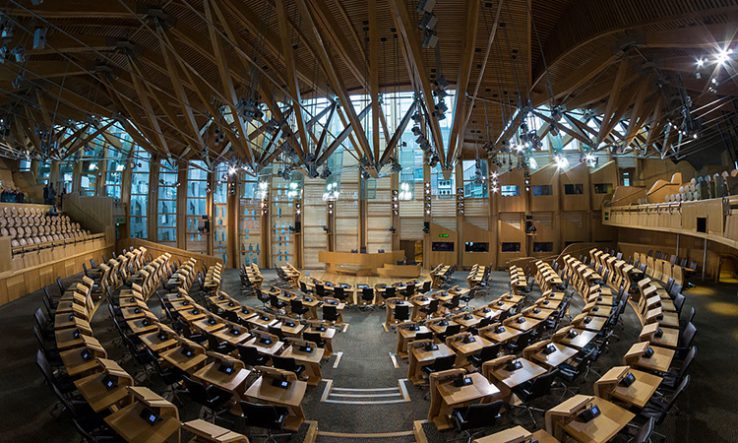
Meanwhile, Royal Society of Edinburgh is launching a commission on Scotland’s ‘emergence’ from the pandemic
The Scottish government has announced 50 rapid response studies at 15 universities worth almost £5 million to research ways to tackle coronavirus.
The studies will start immediately and are expected to deliver within six months.
They include work to better understand the effects of infection; develop and test new diagnostics and treatments; and investigate new disease surveillance approaches.
“This is an amazing set of research projects which will deliver such an impact in Scotland’s fight against and recovery from Covid-19,” said Alastair Sim, director of Universities Scotland on 28 April.
“To get going on such a broad range of research topics this quickly and to deliver them just months from now shows the responsiveness and relevance of university research to our every day lives.”
Meanwhile, on 29 April the Royal Society of Edinburgh announced the creation of a Post-Covid-19 Futures Commission “to support Scotland in emerging as positively as it can from the current pandemic”.
“Whilst we are still in the eye of the storm and dealing with all that entails it is crucial we start thinking about what happens next,” said Rebekah Widdowfield, chief executive of the RSE. “We are experiencing a rare but fundamental shift in the way society operates which can be a stimulus for longer-term change.”
The commission will bring together a number of “leading practitioners and thinkers from across society”, including:
- Ian Boyd, a professor of biology at the University of St Andrews and former chief scientific adviser to the Department for Environment, Food and Rural Affairs
- Sue Bruce, the electoral commissioner for Scotland
- Nasar Meer, professor of race, identity and citizenship at the University of Edinburgh
- Massimo Palmarini, director of the MRC-University of Glasgow Centre for Virus Research
- Anton Muscatelli, principal of the University of Glasgow
“The commission is intended to both help address some of the more immediate challenges as well as promote discussions around some of the bigger questions that the pandemic—and our response to it—raises about the kind of society we wish to be,” said Widdowfield.